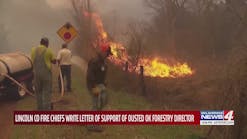Studying the many aspects of leadership has formed a significant part of my professional life for well over four decades now. My research has determined that some people really are better leaders than others. Let me now ask you a critical question: Why? Is this luck, fate, education, experience or some combination of all of these?
Learning about leading
Let me suggest that effective leadership comes about as a result of hard work and a strict adherence to certain personal and professional standards of performance. Those individuals who experience the most success in positions of leadership are those who spend the requisite amount of time learning the principles of effective leadership and then applying these principles to leading their folks. These people then take great pains working to maintain and refine those skills and principles.
The formula for leadership success is as simple to state as it is difficult to implement. Some people also work to continually refine their leadership style based upon their experience. Those things that lead to success are kept in their personal arsenal of skills, and those things that do not are discarded.
Leadership traits
For many years, people in the fire service looked to the now-discredited “physical traits theory” to define a leader—or at least what they should look like. These traits were used to select and cultivate future candidates for positions of leadership. Back then, we thought leaders were all tall, muscular, decisive, tough and possessing that chiseled look of a movie-star-type of leader. And if you didn’t look the part, you never got to be a leader.
Now we all know just how much bull was involved in the explanation of those old leadership theories. Fortunately, we have moved well beyond an emphasis on the physical traits exhibited by an individual, and know now that the things that we should look for in our leaders have a lot more to do with mental characteristics and moral attributes than with a person's physical endowments.
Let me stress that while traits are no longer the major determinants in selecting and developing our leaders, we do need to emphasize that such folks must behave in a respectful and morally correct manner. We are not looking for the brutish people who come across as foul-mouthed, unkempt and slovenly people. That much I know for sure.
Let me also strongly stress that people in positions of leadership must have an even temperament and act in a calm and rational manner. No one likes to follow a person who is constantly shooting from the hip and going off half-cocked. I know that I have never felt comfortable in the presence of the “Chicken Little, the sky is falling”-sort of folks. People in leadership positions need to serve as a rock-solid foundation for the actions of the organization and the performance of their subordinates, and they should act as a fulcrum during stressful situations.
A successful leader must exercise sound judgment and make logical decisions based upon the facts that are available to them. Some decisions, such as those on the fireground, must be made quickly, while others should be studied and analyzed to ensure that the proper data has been gathered for decision-making. A successful leader will be the one who is able to exercise sound judgment and make rapid analyses of the available information and alternatives.
Effective leaders are enthusiastic about their work. This genuine commitment that they live in the midst of their labors is contagious. It spreads to subordinates, who, in turn, derive a similar level of satisfaction from their work. Such a leader builds an aura of trust and stimulates creativity among the work team. They do not toss cold water on the troops once they get them thinking and acting. They guide rather than herd or drive their people.
Good leaders are dependable. Both superiors and subordinates know that the word of such effective leaders is their bond. People have no reason to doubt those leaders who earn the trust of their associates on a daily basis. People who work for leaders like this are well aware of the fact that they will receive valuable direction and solid backing in all of their labors.
Further, mutual trust is vital. I say this because we must all depend on one another to perform as a team in some really threatening situations and environments. People depend upon the leader, and the leader most certainly depends upon their people. The conscientious fire service leader exercises an appropriate level of concern for the safety of everyone with whom they work.
It is most important for a leader to fully know and understand their job. They must also know the jobs of the people with whom they work. I say this for one simple reason: How can a leader tell a follower that there is a problem with the manner in which they are performing their job if they have never learned what the job looks like when it is properly done? This is incredibly important for an organization’s success.
Leaders must be able to solve daily problems as they arise. Letting things slide is one sure way to guarantee future fire department failure.
A good leader is also diplomatic and tactful in dealing with people both within and outside the fire department.
In working the leader/follower equation, the leader must be fair and impartial at all times. They must concentrate on their subordinate's concerns, while shunning any sort of favoritism toward members of the work group.
I urge all people in positions of leadership to remember that their followers work with them and not for them. This is a simple grammatical distinction that can pay great dividends to the person in the leadership role. When the troops are out there taking a beating, you will not see the true leader sucking down a cup of coffee at the fireground rehab center, or warming themselves up in an out-of-the-way spot.
You must remember that every person is a unique individual. While one person may need a great deal of supervision, direction and guidance, another may not. Some may only require the merest suggestion in order to proceed to complete the necessary task or assignment. You need to learn how your people tick so that you can provide the proper level of individualized supervision and leadership to each.
True leaders really get to know their people as individuals. They encourage group participation in the planning phases of their work and provide each person with as much responsibility as they believe their troops can handle.
It is critical for the leader to remember that one of their primary responsibilities to their people and their organizations is the development of a corps of well-trained, dedicated and motivated followers. To ignore this role is to guarantee failure within your fire department.
Maintaining the proper balance between authority and democracy requires a wisdom that does not come easily to some people. However, the effort that it takes to provide that balance will be rewarded by the high success rates exhibited by people working under such a leader.
My friends, you lead from the front or you don't lead at all.
Work at it
If you are a leader, work to be the best you can be. If you aspire to be one, hitch your wagon to a person whom you hold up as an example of what a leader should be. You might even wish to approach them and ask them to mentor you as you move along the road toward becoming a leader. Further, you must put forth the effort to learn as much as you can about what a leader is and what they do.
Now, I’d like to close with a simple bit of advice that I have learned over my 53 years in the fire and emergency service world: Leadership doesn't just happen. You have to work at it.

Dr. Harry Carter
HARRY R. CARTER, Ph.D., who is a Firehouse contributing editor, is a fire protection consultant based in Adelphia, NJ. He is chairman of the Board of Commissioners in Howell Township Fire District 2 and retired from the Newark, NJ, Fire Department as a battalion commander. Carter has been a member of the Adelphia Fire Company since 1971, serving as chief in 1991. He is a life member and past president of the International Society of Fire Service Instructors and life member of the NFPA. He is the immediate past president of the U.S. branch of the Institution of Fire Engineers (IFE) of Great Britain. Carter holds a Ph.D. in organization and management from Capella University in Minneapolis, MN.
Connect with Harry:
Email: [email protected]






